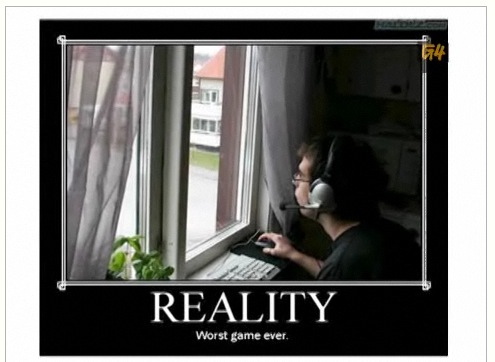The Game-ified Life
[Translations: Japanese]

You should watch this talk on the future of games by game designer Jesse Schell. It is the most mind-changing talk I’ve heard in many years. There were so many new ideas in it, and they went by so fast, that I have already watched it twice and will probably watch it once more. It’s that kind of talk.
I became a fan of Schell when I discovered his book The Art of Game Design which is not only the best book on designing games, but a great book about designing anything complex. (My full review of his book is here.)
Schell begins his talk with very narrow concerns about Facebook games, which is not surprising since his audience here is other professional game designers. He makes the point that some of the largest and most profitable games today are not on game consoles but run on Facebook or other nonobvious platforms. He admits that most of these non-game platforms for successful games were unexpected — even for pros like himself.
In the second part of his talk he notices how many of these unexpected hit games have the common element of “breaking through the reality barrier.” The Wii, Guitar Hero, Webkidz, fantasy football, and so on all have one foot in fantasy and one foot in the real world — gestures, plastic guitar, stuffed animal, football games — and so are part of a greater movement towards artificial authenticity.
It’s the last third of his talk where Schell really gets going. He offers a vision where ordinary life is gameified. Cheap tracking technology turns whatever you do into a “game” that accumulates points. As the gameification of life becomes ubiquitous, you go through your day racking up points and “getting to the next level.” Instead of getting grades in school you graduate to the next level. It’s a head spinning scenario, with lots to love and hate, but well worth considering.
On second viewing I realized that Schell had also outlined a version of an attention economy — where points are distributed for paying attention — to ads, or other activities, or other people. Some aspect of his vision seems pretty inevitable.
I bet there’ll be a movie based on this scenario soon enough.


